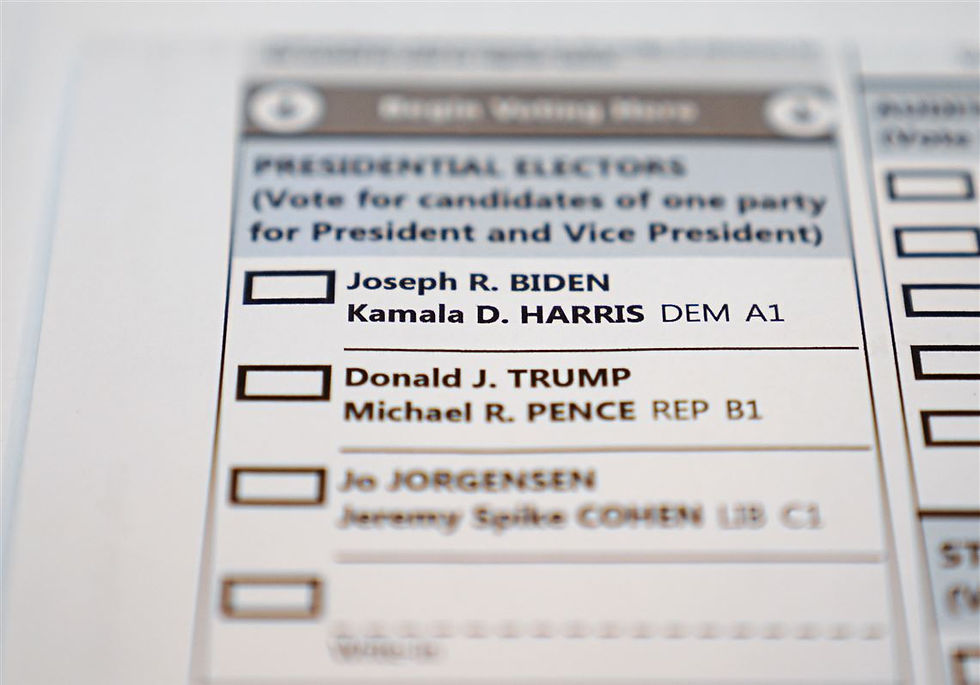Should corporations vote?
- Milton Friedman Society

- 19 mag 2021
- Tempo di lettura: 3 min
By Alberto Fiorentino

The recent announcement by Joe Biden about his intentions to promote a bill aimed at revolutionizing tax law for corporations begs the question of who the real disenfranchised subjects in contemporary democracies are. Apparently, any policymaker feels free to raise taxes and do whatever he wants with others money just because he fears no consequences for his political career. Maybe this is not the case for President Biden, but we should wonder what the chances of being reelected would be for a politician pledging to double the personal tax rate for every income bracket.
Leaving aside considerations about the destined use of taxpayers’ money and if it should or should not be collected at all, should corporations have the right to vote and to express their opinions on taxation? In the real world, the problem on the origin and on the destination of money cannot be considered on its own as the allocation of resources and political power in the present will determine the allocation of the same in the future. Here we only care about present time, but the following considerations are intemporal.
In a liberal democracy, every agent that will be affected by the outcome of the democratic process should be entitled to an equal say in such process. The agent, to receive this right, must be able to exercise it and be autonomous in its decisions. If both the requirements of being affected by law and of being able to choose for itself are satisfied, then a corporation should be allowed to vote.
Business entities are definitely affected by legislation in many ways: there exist laws that prohibit certain practices or mandate others, laws that establish standards for products and licenses to provide services and many other sorts of regulations. Then there is tax law, where Biden wants to hike the corporate tax rate from 21% to 28%, wiping out 9% of next year’s S&P 500 per-share earnings according to Goldman Sachs.
Corporations are legal persons. Without being too technical about the various forms these entities can take, they are owned by shareholders and are separated from them. The form under which they are incorporated makes a big difference with respect to the degree of separation from their owners: in public companies, shareholders appoint a board of directors, while in family businesses the income of the owner is only derived from his commercial activity which is solely owned by him. In this latter case there is no concrete separation and it would be extremely difficult to distinguish the interests of the owner from those of the firm.
But in the case of big investment funds that own the largest share of many corporations, the typical shareholder votes with his feet, that means selling his share in the business if things go south. Corporations can therefore be considered independent from their shareholders in the decision-making process, but, even if executives do not consult their employers on a daily basis, as Milton Friedman pointed out, they still have the responsibility to make as much money as possible while conforming to the basic rules of the society. These means that, in the end, corporations are not completely autonomous from their shareholders’ will.
Corporations satisfy the requirement of being affected by the democratic process but not that of being autonomous agents and so they should not vote. Letting business entities vote would mean giving to their shareholders the ability to vote more than once, thus being more represented than those who are not owners of a firm.
There are local jurisdictions in which legal persons can vote, an example of which is the City of London, but they constitute the majority of the persons living there, both in terms of income and of land occupied. If they were not to vote, the small number of physical persons living there would have a disproportionate say for the little stake they have in the place. Should voting rights be allocated according to how much people and entities would be affected by the government? If the answer is affirmative, then maybe democracy with universal suffrage is not the solution.



Commenti